Neuropsychology – The Basics
Neuropsychology focuses on two things– the brain’s physical structure and our psychological behaviors. Since advances in imaging technology in the middle of the 20th century, neuropsychology has become an increasingly popular and productive field in the world of mental health.
Those practicing neuropsychology typically work in one of two areas: cognitive neuropsychology and clinical neuropsychology. These two areas of study complement one another. Those in the cognitive field provide research that informs clinical practice, and vice versa.
Anyone seeking care from a neuropsychologist should look for a credentialed mental health professional. The American Board of Clinical Neuropsychology and the American Academy of Clinical Neuropsychology are both respected organizations that certify these professionals.
Neuropsychology can address several mental health issues, including:
- Developmental delays and disorders
- Addiction and substance abuse
- MS
- Tourette Syndrome
- Autism Spectrum Disorder
- Traumatic Brain Injury (TBI)
- Learning disabilities
- Bipolar Disorder
- Alzheimer’s
- Depression
- Stroke
- Anxiety
Depending on the case, a neuropsychologist will run a certain sets of test on a patient to confirm a diagnosis and develop a treatment plan. This process is commonly referred to as a “neuropsych.”
What is Neuropsychological Testing?
Neuropsychological testing, or a neuropsych, involves a range of tests that examine the cognitive and executive functioning of an individual.
There is no physical strain or stress involved in a neuropsych, but it can be a long and taxing process. Neuropsych exams can serve as stress tests in many ways, pushing patients in terms of cognition and emotion. Patients should discuss the process in detail with their doctor, so that they understand what is involved and are prepared. No neuropsych examination will push a patient too far, and the ultimate goal is to get that patient on the road to healing.
Which Neuropsychological Disorders Does it Test for?
A neuropsychological evaluation can assess an existing condition to gauge its stage of development or provide a new diagnosis. It is often used to help those with physical disorders, including TBI or stroke. A neuropsych can also identify mental health disorders, such as bipolar disorder.
Assessing An Existing Disorder
A neuropsych can be used to assess the effects of a physical event on the brain. For example, a doctor might use one to determine what areas of the brain were affected in a patient in the aftermath of a Traumatic Brain Injury.
Other issues neuropsych testing can aderess include:
- Seizures
- Stroke
- Memory loss
- Alzheimer’s
- Dementia
Learning and Developmental Disorders
Neuropsychological testing is also useful in identifying and diagnosing developmental disorders in children. These can include:
- ASD
- Sensory Processing Disorder
- Language disorders
- Seizure disorders
- ADHD
- Dyslexia
Mood Disorders
Patients with mood disorders can also benefit from neuropsych testing. Oftentimes, mood disorders are hard to identify, and a neuropsych can dial in on the problem at hand. Patients with bipolar disorder, severe depression, or psychosis are just some of the individuals that can benefit from a neuropsych exam.
Running a Differential Diagnosis
Oftentimes, practitioners need to rule out other disorders in order to give a diagnosis. For this reason, a neuropsych exam may include a differential diagnosis. As an example, an elderly person presenting with memory loss may have Alzheimer’s, but TBI needs to be ruled out before that diagnosis can be confirmed. Running a differential diagnosis may involve a physical examination.
Types of Neuropsychological Tests
Practitioners typically test across seven categories during a neuropsych:
- Executive Function
- Visuospatial
- Memory
- Intelligence
- Language
- Dementia-Specific
- Multiple Functions
Memory
You may not realize this but memory works in five different ways: procedural, semantic, episodic, short-term, and priming. A neuropsych may assess one or more of these areas of memory.
Intelligence
Intelligence can be affected quite easily after physical trauma. A neuropsych is a reliable way to test areas of one’s intelligence that might be less affected by trauma; thereby providing a differential diagnosis.
When testing for any form of intelligence, doctors use scales to compare a patient’s results with those of other individuals with similar backgrounds.
Language
Language testing in a neuropsych can assess what aspects of language a patient has retained after a trauma such as a stroke or seizure. It can also be used in assessing developmental delays.
Executive Function
Testing for executive function involves assessing a patient’s ability to solve problems, organize, and even plan. Testing can vary depending on the patient’s medical history.
Visuospatial
In some neuropsychs, the doctor may test visuospatial functioning. This determines how well a patient can perceive, integrate or construct a visual space.
Dementia-Specific
Dementia-specific testing is run on individual’s who may have Dementia. A doctor typically uses the Clinical Dementia Rating and the Dementia Rating Scale to assess whether or not a patient has the disorder or in what stage of development that patient is.
Multiple Functions
Some neuropsychological exams may involve testing multiple functions across different areas, including:
- Reasoning
- Language
- Calculations
- Construction
- and, Memory
A certified neuropsychologist has many tools that she can use to assess cognitive function. Determining which tests can benefit a patient’s particular case is an essential part of the diagnostic process.
